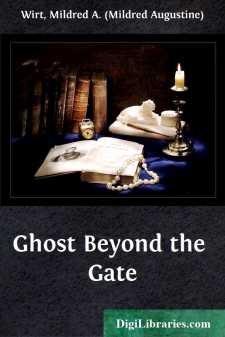Fiction
- Action & Adventure 180
- Biographical 15
- Christian 59
- Classics
- Coming of Age 5
- Contemporary Women 3
- Erotica 8
- Espionage/Intrigue 12
- Fairy Tales, Folklore & Mythology 236
- Family Life 169
- Fantasy 117
- Gay 1
- General 596
- Ghost 32
- Historical 808
- Horror 43
- Humorous 160
- Jewish 25
- Legal 4
- Medical 22
- Mystery & Detective 315
- Political 49
- Psychological 41
- Religious 64
- Romance 159
- Sagas 11
- Science Fiction 730
- Sea Stories 113
- Short Stories (single author) 537
- Sports 10
- Suspense 1
- Technological 8
- Thrillers 2
- Urban Life 31
- Visionary & Metaphysical 1
- War & Military 173
- Westerns 199
Classics Books
Sort by:
Introduction Robert Louis Stevenson first came to California in 1879 for the purpose of getting married. The things that delayed his marriage are sufficiently set forth in his "Letters" (edited by Sidney Colvin) and in his "Life" (written by Graham Balfour). It is here necessary to refer only to the last of the obstacles, the breaking down of his health. It is in connection with the...
more...
I A black bang was, but not ultimately, the most notable feature of her uncommon personality—straight and severe and dense across her clear pale brow and eyes. Her eyes were the last thing to remember and wonder about; in shade blue, they had a velvet richness, a poignant intensity of lovely color, that surprised the heart. Aside from that she was slim, perhaps ten years old, and graver than gay. Her...
more...
by:
Various
NORTH AMERICA, SIBERIA, AND RUSSIA. The circumnavigation of the world is now a matter of ordinary occurrence to our bold mariners: and after a few years it will be a sort of summer excursion to our steamers. We shall have the requisitions of the Travellers' Club more stringent as the sphere of action grows wider; and no man will be eligible who has not paid a visit to Pekin, or sunned himself in...
more...
CHAPTER I IN THE BEGINNING Had I a plantation of this Isle, my lord— * * * * * I' the Commonwealth I would by contrariesExecute all things; for no kind of trafficWould I admit . . . riches, povertyAnd use of service, none. SHAKESPEARE How quaint seems the demand for details of life on this Isle of Scent and Silence! Lolling in shade and quietude, was I guilty of indiscretion when I babbled of my...
more...
CHAPTER1 LOST ON A HILLTOP The little iceboat, with two laughing, shouting girls clinging to it, sped over the frozen surface of Big Bear River. “Penny, we’re going too fast!” screamed Louise Sidell, ducking to protect her face from the biting wind. “Only about forty an hour!” shrieked her companion gleefully. At the tiller of the Icicle, Penelope Parker, in fur-lined parka, sheepskin coat...
more...
by:
Mary D. Brine
The mantle of evening is veiling the sky,And over the landscape its soft shadows lie;The old year is passing, a new year will reign,Ere earth shall awaken to day-dawn again. Dear Grandma has folded her knitting away,And muses alone at the close of the day;While the old clock ticks solemnly off, one by one,The moments yet left to the year almost done. Out from the shadows fast filling the room,Out from...
more...
PART I HISTORICAL CHAPTER I THE DEPARTURE 1493 Eight centuries of a gigantic struggle for supremacy between the Crescent and the Cross had devastated the fairest provinces of the Spanish Peninsula. Boabdil, the last of the Moorish kings, had delivered the keys of Granada into the hands of Queen Isabel, the proud banner of the united kingdoms of Castile and Aragon floated triumphant from the walls of...
more...
by:
Alice Campbell
CHAPTER I When Esther rang the bell of Numéro 86 Route de Grasse, she felt within her that pleasant sort of stage-fright—a mixture of dread and exhilaration—which one is apt to experience when venturing into the unknown. The thrill might be out of all proportion to the prosaic character of her mission—for what is there exciting in applying for a post as a doctor's assistant?—yet there was...
more...
by:
Fox B. Holden
His head hurt like blazes, but he was alive, and to be alive meant fighting like hell to stay that way. That was the first thing returning consciousness told him. The next was that his helmet should have been cracked wide open when the bum landing had wrenched the acceleration hammocks out of their suspension sockets and heaved his suited body across the buckled conning deck. It should've been,...
more...
THE CANDIDATE FROM YALE. "O your college paper, I suppose?" "No, I never wrote even a letter to the editor." "Took prizes for essays?" "No, I never wrote if I could help it." "But you like to write?" "I'd like to learn to write." "You say you are two months out of college—what college?" "Yale." "Hum—I thought Yale men went...
more...











